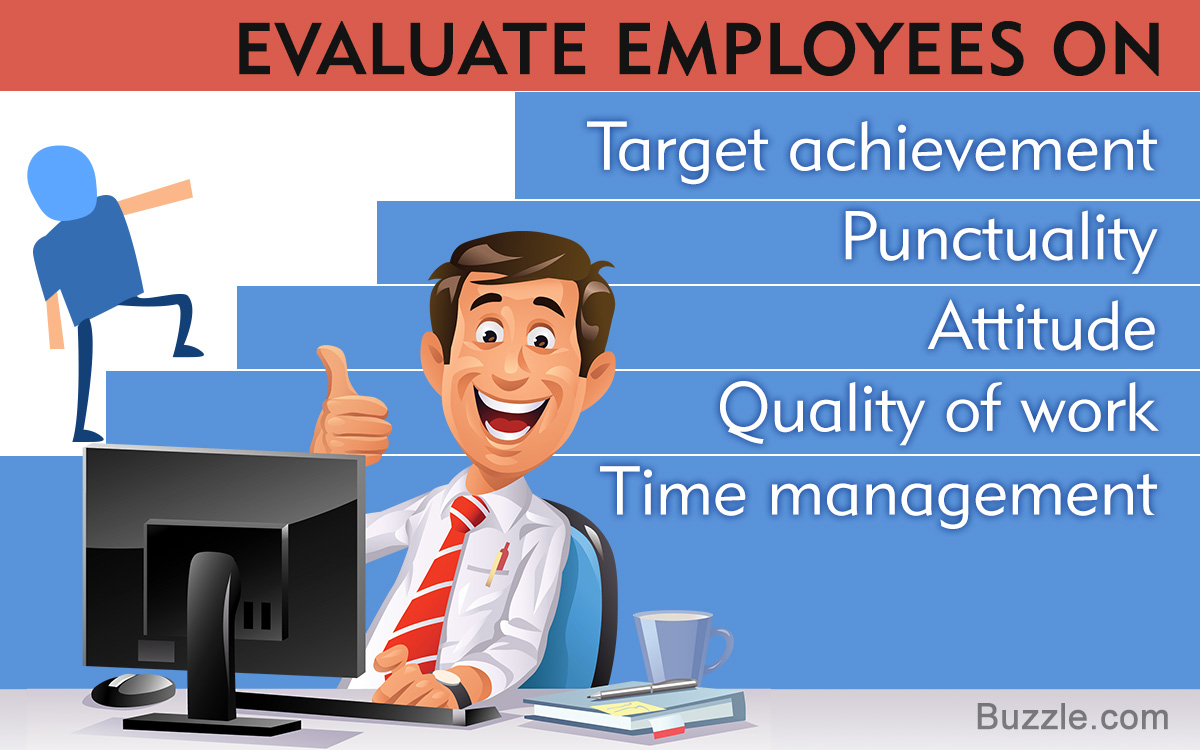
A fair and just employee evaluation criteria ensures that performance appraisal achieves the goal of identifying industrious employees and encourages meritocracy by promoting a system of compensation that is commensurate with performance.
Annual performance appraisal is important from the perspective of assessing the contribution of the employee to the organization. Performance appraisal helps measure the productivity of the employee, and assess the quality of work delivered by him.
Adherence to a specific work schedule, timely completion of assignments, good interpersonal communication, and ability to integrate well with other employees are some of the factors that govern the result of performance appraisal.
Performance appraisal also seeks to determine, whether an employee is able to blend with the organizational culture, while introducing values that would promote the purpose of the company. It is evident that the results of a performance appraisal hinge on both qualitative and quantitative factors, respectively.
While the ratings assigned on the basis of measurable factors can be justified, it would be difficult to quantify intangible skills. Besides, employee evaluation comments should be fair and unbiased, since employee compensation is based on the results of performance appraisal.
Measures for Evaluation
Objective Evaluation
Objective evaluation is convenient for both supervisors and employees. Objective evaluation is based on factors that can be quantified, scores that can be measured, and results that can be clearly tabulated. The biggest advantage of objective evaluation is that the employee cannot accuse the supervisor of being partial. The work undertaken by the employee and his actions alone will influence the results of an objective evaluation.
For instance
- The sales generated by the employee in a particular month can be easily measured in both monetary and nonmonetary terms. This figure can be compared to the given target. The employee’s performance can be evaluated by comparing the sales generated with the expected target, and ratings, thus, may be assigned.
- The number of units produced, the number of calls made, and the leads generated are some of the categories that would constitute an objective evaluation criteria.
- In addition to measuring productivity, punctuality and time management can also be assessed in a similar manner.
Subjective Evaluation
Subjective evaluation, on the other hand, is based on a number of factors that cannot be measured. Anything that cannot be quantified is subject to bias. Subjective evaluation criteria includes assessing the quality of work and the attitude of the employee. Initiative, dependability, effective communication, and proactive exchange of information are key performance indicators that would influence the outcome of a subjective evaluation. Although these qualities are very important in order to ensure good work ethics, the inability to justify a rating based on these qualities makes performance appraisal a daunting task.
For instance
- Quality of the output is as important as the quantity. An employee who meets his targets, but finds it difficult to adhere to the strict standards of quality, would have accomplished only a part of the assigned job.
- A salesperson who generates a huge volume of sales without focusing on building a loyal customer base is not really good at marketing. An impartial assessment of these factors is difficult, if not impossible.
Employees Must Know
It is probable that you receive a negative evaluation report from your respective evaluator. — In a case such as this one, it is important that you approach the supervisor or the evaluator, and ask for a detailed report highlighting the instances where your performance has fallen short of meeting the required standards
Besides, once convinced, you may request a feedback session where ad hoc suggestions with regard to your performance are imparted. Indeed, negative evaluation, has a positive side to it, as well.
Matters pertaining to performance evaluation and subsequent appraisals are confidential. — The process and consequential reports must involve the supervisor and the concerned employee only. However, an official from the human resource department may also be included in the proceedings.
The evaluator must ensure the details with regard to performance appraisal are sealed. However, if an employee suspects a strife in the system, he may broach up his concern by discussing the issue with a higher authority.
Make sure you keep a track of all the evaluation procedures that have taken place. — Maintain a log that spells positivity about your performance. Document them for future reference. They may act savior documents, lest an unfortunate eventuality, for instance, flippant demotion or termination of services, may occur.
In addition, performance appraisal has to conform to antidiscrimination federal and state laws. Noncompliance with the aforementioned laws may have dire consequences for the supervisor in charge of the evaluation process.
Performance appraisal training can be useful in order to convey to the employees the need for employee performance evaluation. The trainees can be given a fair idea about the employee evaluation criteria. This is a must, since evaluation depends on both objective and subjective factors.
In fact, automating performance appraisal, with the help of performance appraisal software, not only helps the organization save time and money, but also ensures fair and just evaluation by removing any psychological elements that may have a negative bearing on unbiased evaluation. The software can also create customized employee evaluation forms to ensure competency in the appraisal process.
